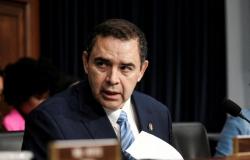These are five words that made TV history. Killed them all, of course. Of course I killed them all. These words were used in the American documentary series The Jinx spoken by Robert Durst, the New York millionaire suspected of three murders. Filmmaker Andrew Jarecki, who had been researching the life of the eccentric Durst for ten years at that time, had grilled him during an interview about the murder of Durst’s good friend Susan Berman. While Durst went to the bathroom and thought he was alone with his thoughts, he forgot that his pin-on microphone was still recording and unintentionally mumbled the confession.
In 2015, the scene was the spectacular closing moment of a six-part series that is seen as a highlight of the true crime genre. The Jinx was already a hit worldwide for the HBO channel before that big climax. Every week, viewers received more details about the bizarre cases in which Durst, filthy rich thanks to his father’s real estate empire, was involved. First there was the disappearance of his wife Kathleen McCormack in 1982. Later came the murder of Berman, who was shot dead in her own home in 2000. She would know more about McCormack’s disappearance. And a year later, Durst killed his neighbor Morris Black. He previously admitted to the last murder, but claimed it was self-defense.
On March 14, 2015, Durst, then 71, was arrested while the final episode of The Jinx had to be broadcast a day later. The show’s team had shared their incriminating material with the authorities much earlier. The FBI had to take action before the suspect, who also followed the series on TV, would flee. After the fifth episode he became very nervous.
After the arrest, a trial followed and Durst was sentenced to life in prison for Berman’s murder. He died four months later.
Do not let go
Director Jarecki could not let things go and continued to investigate unanswered questions and the environment of the convicted murderer. Nine years after the first series, there is a sequel under the same title The Jinx: Part Two. The season started on Monday with the first episode, journalists were shown four episodes in advance.
Just like with the follow-up seasons of other successes from the genre, such as for example Making a Murderer 2, goes some of it The Jinx: Part Two about the series itself. And that always feels uncomfortable. “Look what a media sensation we were,” screams the first episode of the second season. This aspect reaches a high point (or low point) during a section in which we see all kinds of stakeholders, including the victims’ families, as they watch the final episode together in 2015 and react to the ‘killed them all‘-moment.
After this, the attention shifts to more interesting matters. Because how was it possible that this murderer seemed to get away with his crimes for decades? Prosecutor John Lewin, the man who ultimately convicted Durst, has a simple explanation for this in the series: “If you have a lot of money, people are willing to do things for you.” Lewin speaks a lot this season. He says that money is not the only factor. Durst was a fascinating figure: “Just because you’re a murderer doesn’t mean you can’t be charming.”
The small group of Durst’s confidants formed the most important common thread, Jarecki said in an interview with Vanity Fair: “The idea that there is a group of people who see themselves as good and decent and yet decide to help a murderer.”
Spicy country
Jarecki gets many people involved in front of the camera who did not want to talk to him in the first series. Nick ‘Chinga’ Chavin, for example, Durst’s long-time best friend (called ‘Bob’ by friends). The two met in the 1970s, when Chavin was trying to make a career with comedic-spicy country music. In 1975 he released Country Porn released, an album with songs like ‘Cum Stains On The Pillow’ and ‘Asshole From El Paso’. “Bob and I felt contempt for the law, rules and society,” he says. When asked whether he had difficulty with the accusations against his friend, he gives a telling answer: “It had no impact on me. I don’t feel that moral hatred for murder and murderers.”
As long as it doesn’t bother you, it’s not a problem. Chavin, who would later play a prominent role in the lawsuit against Durst, was important to Jarecki. In return for Vanity Fair: “He was needed to understand how the people around him thought. They considered themselves loyal to a friend and separated that from their responsibility.”
Compared to other titles in the true crime genre The Jinx: Part Two from the outside category: very well and thoroughly made and with a broader social message about the way in which the very rich are often not held accountable. As creator, Jarecki himself of course also has responsibility. According to some critics, the editing was of The Jinx not always clear enough and sometimes even misleading.
This is the kind of criticism that goes The Jinx: Part Two not in the first four episodes. Well-made true crime is also a form of entertainment, full of plot twists and crazy characters. Sometimes the truth fades into the background to make the story as smooth as possible. Jarecki knows that too. Does that ever make him feel uncomfortable? We have not yet received an answer to that question.
To share
Email the editor
Tags: Jinx years shocking confession
-





